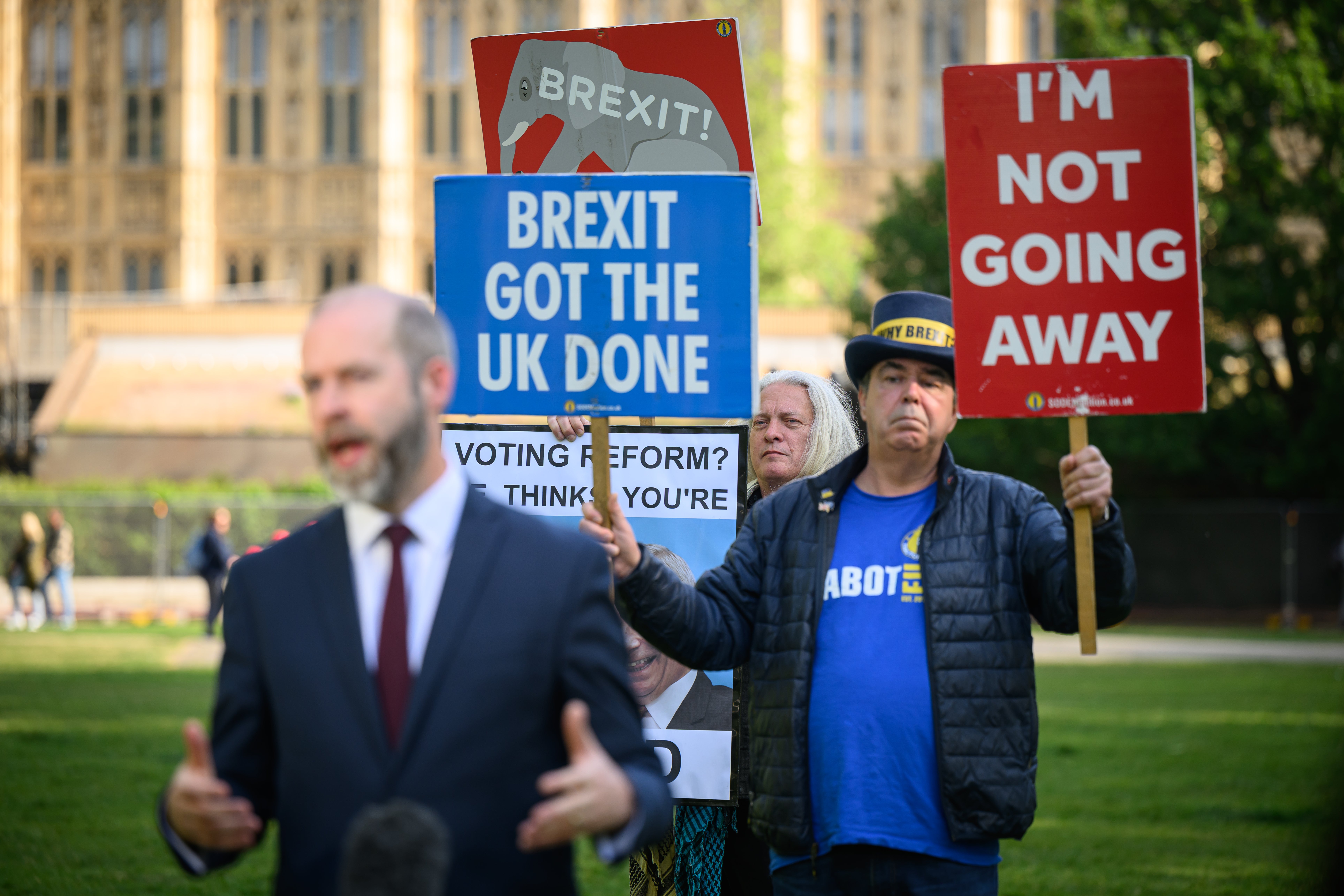With the Donald Trump trade deal, the malign momentum of Brexit is at work again
The US-UK trade deal has rightly been hailed as a diplomatic and political coup for the Labour government – but one unintended consequence is that it makes rejoining the EU a near-impossibility, says Sean O'Grady

Congratulations, then, to Keir Starmer. You’ve succeeded where Rishi Sunak, Liz Truss, Boris Johnson and Theresa May all failed. Relatively modest the US-UK trade deal may be, it is a diplomatic and political coup for the Labour government.
Its unveiling was almost theatrically timed to arrive on the 80th anniversary of the Allied victory in Europe – and hot on the heels of the more extensive prospective economic treaty with India.
But let us not lose our sense of perspective. Taken together, the hard-won improvements in trade secured by this administration and its predecessors with the trans-Pacific partnership region (including Japan, South Korea and Malaysia), with Australia, with New Zealand, and now with India and the United States, are to be applauded. But they do little to account for the grievous losses to the UK economy inflicted by Brexit.
Easier access for goods and lower tariffs in a few key sectors are in a different and inferior league to full membership of the European Union, which, collectively, is still by far our most important market, source of supplies and – in the past – of investment and labour. Nothing comes close or ever can to the potential of the EU single market and the EU’s customs union.

And this is where every new trade deal that Britain strikes, otherwise good news, is a massive problem – because it makes it ever more difficult for the UK to rejoin the European Union. The US deal is no different: it it has effectively put to bed any hope of going back on Brexit.
You might, if you were very lucky, construct trade deals such that they are compatible with EU Single Market membership – or indeed the very “reset” that Starmer is still pursuing (though that, too, will inevitably be complicated). But membership of the EU Customs Union is literally impossible with separate UK trade deals with third parties. That is the whole point of a customs union – a common external tariff imposed by all members, allowing for tariff and quota-free trade within the customs union.
If we wanted to rejoin the EU (and this is not a fanciful proposition as the years go by and the realities of Brexit sink in still further), we should have to tear up our existing treaties with India, Australia, New Zealand, the trans-Pacific partnership and the new arrangements with the US. It would make the negotiations much more difficult and create a new wave of uncertainty about the UK’s economic future that would be bad for investment and faith in the British as a reliable long-term partner.
This is the malign momentum of Brexit at work again. It made the country poorer, and thus more desperate to get deals. The Aussie and Kiwi deals were rather hurriedly agreed for political reasons because Johnson and Truss wanted “Brexit wins”.
Now, without the negotiating heft of the world’s largest single market, the British have had to accept what terms they can get from the economic superpowers of America and India.
But in winning those deals, a new deal on rejoining the EU becomes more difficult. It actually entrenches Brexit as an increasingly permanent fact of economic life.
Psychologically, the British gradually lose the sense that their destiny lies in Europe, despite all the defence, security and economic pressures that still make that much the most rational, and realistic, future home for British ambitions. The agreements with India and the US, so superficially welcome and appetising, contain what amounts to a poison pill so far as Britain’s destiny in Europe is concerned.
Sorry to spoil the party.
Join our commenting forum
Join thought-provoking conversations, follow other Independent readers and see their replies
Comments